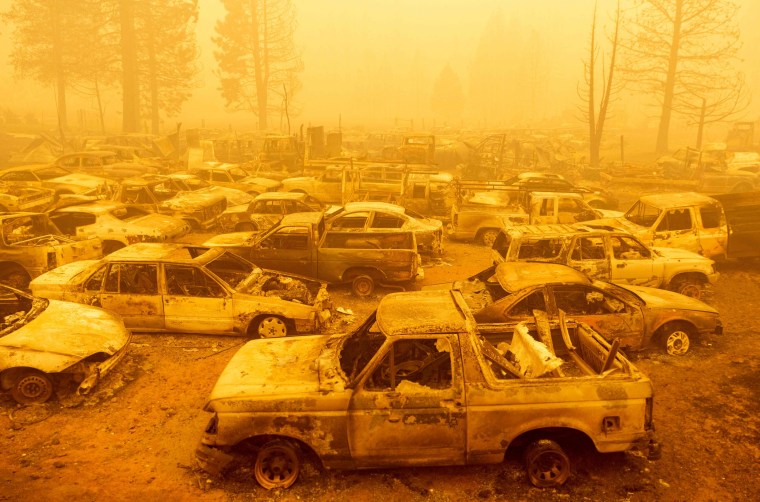The Dixie Fire became the second-largest wildfire in California history Sunday as thousands of residents remained under evacuation orders and more than 10,000 buildings stood in its path.
The fire, which began July 14 and leveled much of the historic Sierra Nevada town of Greenville last week, grew to 463,477 acres, according to the California Department of Forestry and Fire Protection, or Cal Fire. Less than a quarter of the blaze is surrounded by containment lines.
Only the August Complex fire, which scorched more than 1 million acres across seven counties last year, was larger, according to Cal Fire data.

No deaths have been reported, although four people remain unaccounted for, officials in Plumas County said Sunday. Three firefighters have been injured, and more than 400 buildings have been destroyed, according to Cal Fire.
Another 13,000 buildings remained threatened, and about 40 percent — representing about 7,000 people — are under evacuation orders in Plumas County, officials said.
In a briefing Sunday, Jake Cagle, a section chief with the U.S. Forest Service, said a layer of smoke that settled over an eastern section of the fire was expected to lift in the afternoon, allowing firefighters to attack it with helicopters and other aircraft.
But as this "inversion" dissipates, Cagle said, more hot, windy conditions could return, allowing the fire to make another run, as it did toward Greenville.
"We're definitely not out of the woods yet," he said.
Visiting Greenville on Saturday, California Gov. Gavin Newsom compared the site to Paradise — another Sierra Nevada town that burned in 2018 in the state's deadliest wildfire on record — and said the Dixie Fire destroyed much of Greenville in less than two hours.
"We recognize we've got to do more in active forest management and vegetation management," he said. "At the end of the day, though, we also have to acknowledge this: The dries are getting a lot drier, and the heat and hot weather is a lot hotter than it's ever been.
"We need to acknowledge, just straight up, these are climate-induced wildfires," he said.